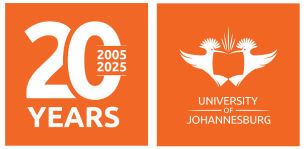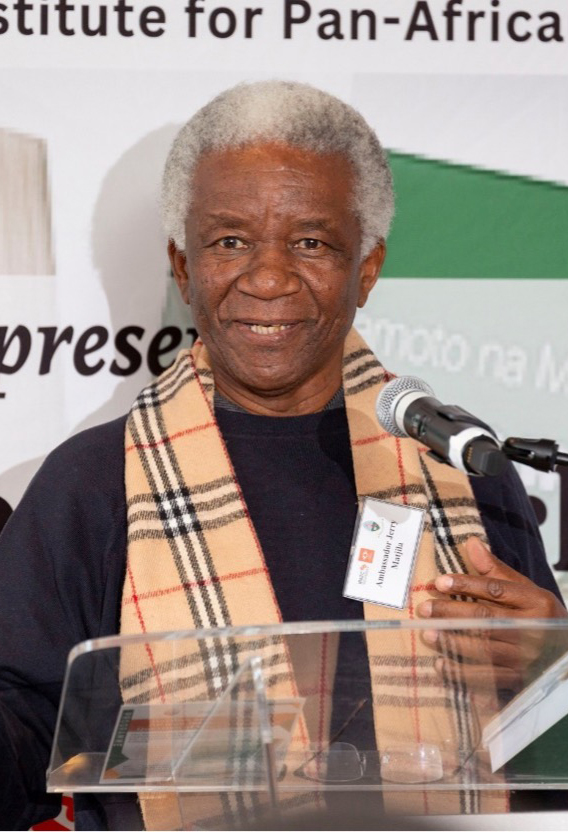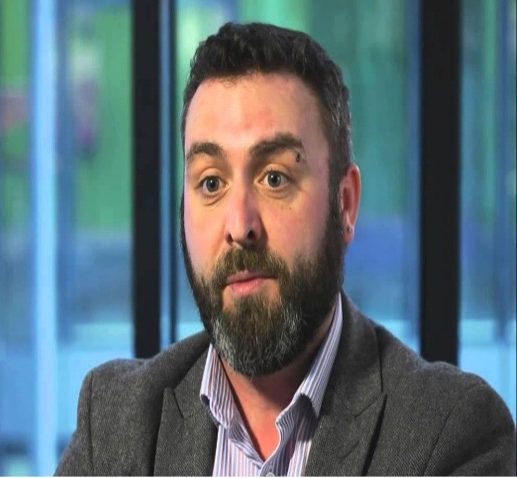African/European Union Migration Project
Since its inception, the IPATC has established itself as one of the leading Institutes on Pan-African thought on the continent. It has particularly fostered its expertise in the area of Africa/European Union (EU) Migration in which it has engaged in research and policy development. In order to facilitate and shape the implementation of the 2018 United Nations (UN) Global Compact for Safe, Orderly, and Regular Migration; IPATC, along with the Friedrich Ebert Stiftung (FES) EU office in Brussels, and the Africa, Caribbean, and Pacific (ACP) Group secretariat, convened a one-day policy dialogue in the Belgian capital in October 2018 two months before the UN Global Compact on Migration was agreed in Marrakesh. IPATC received funding from the German Federal Foreign Office for a 6-month project on “Implementation of the UN Global Compact: Conflict, Governance, and Migration in Africa/EU Relations” which was implemented through the Institut für Auslandsbeziehungen (IFA) between July and December 2019. In order further to consolidate the impact of this work, IPATC has been implementing a 9-month project (May-December 2020) funded by the German Foreign Office through IFA titled “Implementation of the UN Global Compact: Building a Community of Practice in Addressing Conflict, Governance, and Migration in Africa/EU Relations.”
IPATC’s project on Africa/EU Migration project has three main key goals:
- To enhance dialogue and engagement between African and European policymakers, experts, and civil society on the challenges of African migration to the EU;
- To offer concrete solutions to policymakers for the effective management of migration and protection of vulnerable African migrants; and
- To engage and inform African and European publics about issues of migration and implementing the 2018 UN Global Compact on Migration.
A fundamental purpose of this project has thus been to establish a CoP on implementing the 2018 UN Global Compact on Migration. The informal group consists of African and European government officials, EU and African regional bodies, policy experts, and civil society activists from both continents. This goal was partly achieved through organising a two-day policy dialogue in Johannesburg in October 2019 with African and European actors to assess ways of implementing the UN Global Compact. This 2019 policy dialogue was built on an October 2018 policy meeting in Brussels which the Institute had co-hosted with the then ACP Group secretariat and the Friedrich Ebert Stiftung (FES) office, both in Belgium. This latter meeting helped shape the ACP’s policy positions in its negotiations of a new trade accord with the EU, while its policy brief helped to inform government delegates who participated in the Marrakesh meeting two months later at which the UN Global Compact was finalised.
The five key identifiable results of the project were:
- Creating an African and European network and Community of Practice (CoP) that is continuously shaping policy and enhancing dialogue in this critical area;
- Using the recommendations from these initiatives for policy development by African and European governments, as well as by regional bodies on both continents;
- Strengthening the weak policy development and research capacity of African governments and regional bodies;
- Bringing together policymakers, experts, and civil society from both continents to craft concrete solutions for implementing the 2018 UN Global Compact on Migration; and
- Sensitising general publics in Africa and Europe in understanding migration issues in order to contribute more effectively to these debates and reducing anti-xenophobic sentiments against African migrants in Europe.
The Africa/EU Migration project had five key policy outcomes:
- Building on the 2018 Brussels policy meeting, the Institute held the two-day October 2019 policy seminar on “Implementation of The United Nations (UN) Global Compact: Conflict, Governance & Migration in Africa/EU Relations”. This policy seminar was funded by the Institut für Auslandsbeziehungen (IFA). The primary goal of this policy seminar was to establish a policy group and community of practice on implementing the UN Global Compact on Migration. The policy seminar further sought to shape policy and public debates in Africa and Europe by highlighting the challenges and positive aspects of migration which are often missed in discussions around these issues.
- A network and community of practice was agreed among this group from the October 2019 two-day policy seminar to enhance continued dialogue, to share relevant information, and to promote public engagement in Africa and Europe;
- Two six-page policy briefs:
Migration In The EU-ACP Partnership After 2020: Implementing The UN Global Compact
The Impact Of COVID-19 On Africa/European Union (EU) Migration ; - Publication of three newspaper articles (The Star, and Business Day)
AU Urged To Put Greater Effort Into Tackling Migration
Root Causes Of Migration
Impact Of Virus On Africa/EU Migration; and - Hosting of a two-hour public dialogue.
- In an effort to enhance the development of concrete and constructive policy approaches to managing Africa/EU migration amidst the challenges brought about by the COVID-19 crisis, IPATC collaborated with the Nordic Africa Institute (NAI) in Sweden, to hold two joint webinars:
1. The Impact Of COVID-19 On Africa/European Union (EU) Migration
2. The Impact Of COVID-19 On Africa/European Union (EU) Migration - As part of IPATC’s Africa/EU Migration project, the Institute has partnered with the Sweden-based Nordic Africa Institute, one of Europe’s most important think tanks on Africa, to produce a 21-chapter book titled “Worlds Apart? Perspectives on Africa/EU Migration”, to be edited by IPATC and NAI Senior Researchers, Dr. Adeoye O. Akinola and Dr. Jesper Bjarnesen respectively. The book will be published in 2021.
- IPATC held a half-day policy dialogue on “Africa/EU Relations in the Era of COVID-19” in November 2020 at Johannesburg. The meeting assessed Africa/EU relations in historical and contemporary perspective; examined Africa/EU relations within the context of migration challenges amidst the COVID-19 pandemic; developed concrete and constructive policy approaches for managing Africa/EU migration within the broader bilateral relationship; and launched and disseminated the IPATC policy brief on “The Impact of COVID-19 on Africa/EU Migration” published in August 2020, as well as disseminated a previous IPATC policy brief from an October 2019 policy dialogue.


























































 Ms Zoliswa Ntsoko (South Africa) is the Institute’s Administrative Assistant who assists with general administration and research. She is a seasoned professional with a background in Disaster Management. She holds an Advanced Diploma in Management from Milpark Business School, and a Post Graduate Diploma in Public Management from Regenesys Business School. She also holds certificates in Project Management, and in Disaster Management. Previously, she has worked as a Disaster Management Specialist at the City of Johannesburg – Disaster Management Centre.
Ms Zoliswa Ntsoko (South Africa) is the Institute’s Administrative Assistant who assists with general administration and research. She is a seasoned professional with a background in Disaster Management. She holds an Advanced Diploma in Management from Milpark Business School, and a Post Graduate Diploma in Public Management from Regenesys Business School. She also holds certificates in Project Management, and in Disaster Management. Previously, she has worked as a Disaster Management Specialist at the City of Johannesburg – Disaster Management Centre. Ms Cecilia Lwiindi Nedziwe-Moyo is the Research Coordinator at the Institute for Pan-African Thought and Conversation. She previously served as a Regional Coordinator at the Centre for Peace Initiatives in Africa (CPIA) in Zimbabwe between 2007 and 2013. She completed her master’s degree in International Studies, Peace, and Conflict Resolution at the University of Queensland in Australia as a Rotary Peace Scholar. She has just completed her doctoral studies at Rhodes University. Her areas of interest include: gender, foreign policy, regional organisations and conflict resolution.
Ms Cecilia Lwiindi Nedziwe-Moyo is the Research Coordinator at the Institute for Pan-African Thought and Conversation. She previously served as a Regional Coordinator at the Centre for Peace Initiatives in Africa (CPIA) in Zimbabwe between 2007 and 2013. She completed her master’s degree in International Studies, Peace, and Conflict Resolution at the University of Queensland in Australia as a Rotary Peace Scholar. She has just completed her doctoral studies at Rhodes University. Her areas of interest include: gender, foreign policy, regional organisations and conflict resolution.



 Ms Thembeka Somtseu is a seasoned professional with a background in the textile and construction sectors. She holds a National Diploma in Business Administration from the Durban University of Technology, and studied Development Communication and Media Studies at the University of the Witwatersrand. She worked as a corporate communications specialist for more than ten years, serving in both local and multinational companies.
Ms Thembeka Somtseu is a seasoned professional with a background in the textile and construction sectors. She holds a National Diploma in Business Administration from the Durban University of Technology, and studied Development Communication and Media Studies at the University of the Witwatersrand. She worked as a corporate communications specialist for more than ten years, serving in both local and multinational companies.